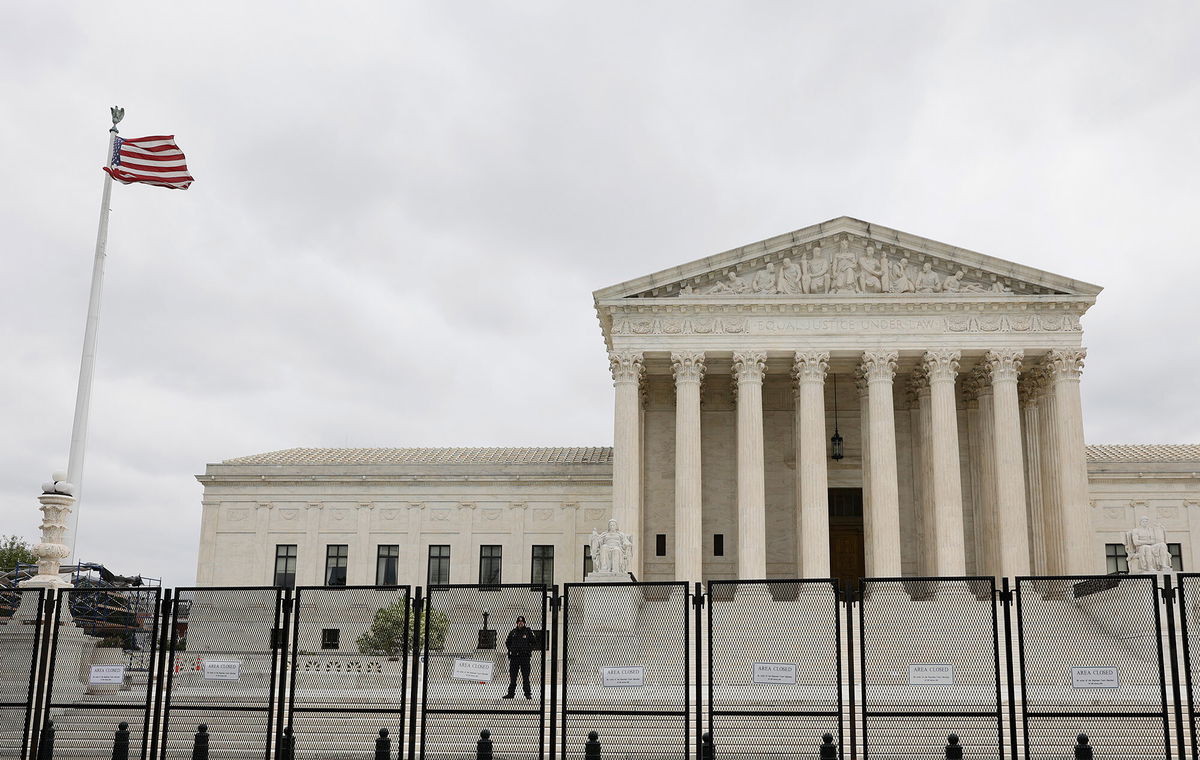States can prosecute non-tribal members who commit crimes on Native American reservations, Supreme Court says

The Supreme Court said on June 29 that states have the authority to prosecute non-tribal members who commit crimes against Native Americans on Indian territory.
By Ariane de Vogue, CNN Supreme Court Reporter
The Supreme Court said on Wednesday that states have the authority to prosecute non-tribal members who commit crimes against Native Americans on Indian territory.
The ruling limits a major tribal ruling issued by the Supreme Court in 2020 and cuts back on tribal sovereignty.
Oklahoma Republican Gov. Kevin Stitt praised the court’s opinion, calling it a “pivotal moment” in a statement.
Stitt has been fighting for state sovereignty on the issue and had expressed fear that if his side were to lose, it could open an avenue for individuals to gain access to abortion on tribal lands, as a way of sidestepping the state’s strict abortion rules.
“We think that there’s a possibility that some tribes may try to set up abortion on demand,” he said in an interview with KTUL before the opinion came down. “They think that you could be 1/1000 tribal member and not have to follow the state law. And so that’s something that we’re watching.”
Justice Brett Kavanaugh wrote the majority opinion in the case Wednesday, joined by Chief Justice John Roberts, Clarence Thomas, Samuel Alito and Amy Coney Barrett. He said that the Constitution “allows a State to exercise jurisdiction in Indian country.”
“Indian country is part of the State, not separate from the State,” Kavanaugh wrote.
Kavanaugh nodded to a controversial 2020 decision called McGirt v. Oklahoma, where the court held that Congress had never formally disestablished the Creek Reservation and therefore a large swath of eastern Oklahoma should be considered Indian territory.
That opinion was penned by Justice Neil Gorsuch and joined by the court’s liberals, who dissented from Wednesday’s decision.
McGirt had spawned chaos and uncertainty in Oklahoma and raised urgent questions concerning the scope of a state’s jurisdiction on Indian land. State courts began reversing numerous convictions holding that Oklahoma had no jurisdiction.
The state returned to the high court asking it to overturn McGirt. Lawyers for the state hoped that Barrett — who has taken the seat of late liberal Justice Ruth Bader Ginsburg– would swing the court’s majority in their favor. The justices agreed to take up the dispute but looked only at the scope of McGirt instead of considering whether to overturn it directly.
All parties recognized that the federal government had jurisdiction to prosecute non-Native Americans for crimes on tribal land, but the new case raised questions if the state also had jurisdiction.
On Wednesday the court said it did.
Gorsuch, now in dissent with Barrett siding with the conservatives, blasted the majority decision. In a dissent filled with references to Native American history, Gorsuch charged that the majority had allowed “Oklahoma to intrude on a feature of tribal sovereignty recognized since the founding.”
“One can only hope the political branches and future courts will do their duty to honor this Nation’s promises even as we have failed today to do our own,” he said.
Cherokee Nation Principal Chief Chuck Hoskin Jr. issued a statement criticizing the court’s action, arguing that the high court had “ruled against legal precedent and the basic principles of congressional authority under Indian law.” Hoskin said that while they were disappointed with the ruling, “it does not diminish our commitment to meeting our public safety responsibilities and to protecting Oklahomans on our reservation and across the state.”
The dispute was initially brought by lawyers for Victor Manuel Castro-Huerta, who is not a tribal member, and was convicted of child neglect in a case concerning his stepdaughter, who is a member of the Eastern Band of Cherokee Indians. The stepdaughter has cerebral palsy and is legally blind. In 2015, Castro-Huerta’s sister-in-law was in the house and noted that the stepdaughter was dehydrated, emaciated, and covered in lice and excrement. When questioned, Castro-Huerta admitted that he had undernourished her. The state of Oklahoma charged both Castro-Huerta and his wife with child neglect. Castro-Huerto was sentenced to 35 years in jail.
After he had been convicted, the Supreme Court decided McGirt and lawyers for Castro-Huerta challenged his conviction, arguing that only the federal government had jurisdiction to prosecute his crime.
While his state appeals court proceedings were pending, a federal grand jury in Oklahoma indicted him for the same conduct. He accepted a plea agreement for a seven-year sentence.
In ruling against him on Wednesday, Kavanaugh noted that Castro-Huerta “in effect received a 28-year reduction of his sentence as a result of McGirt.”
The-CNN-Wire
™ & © 2022 Cable News Network, Inc., a WarnerMedia Company. All rights reserved.
